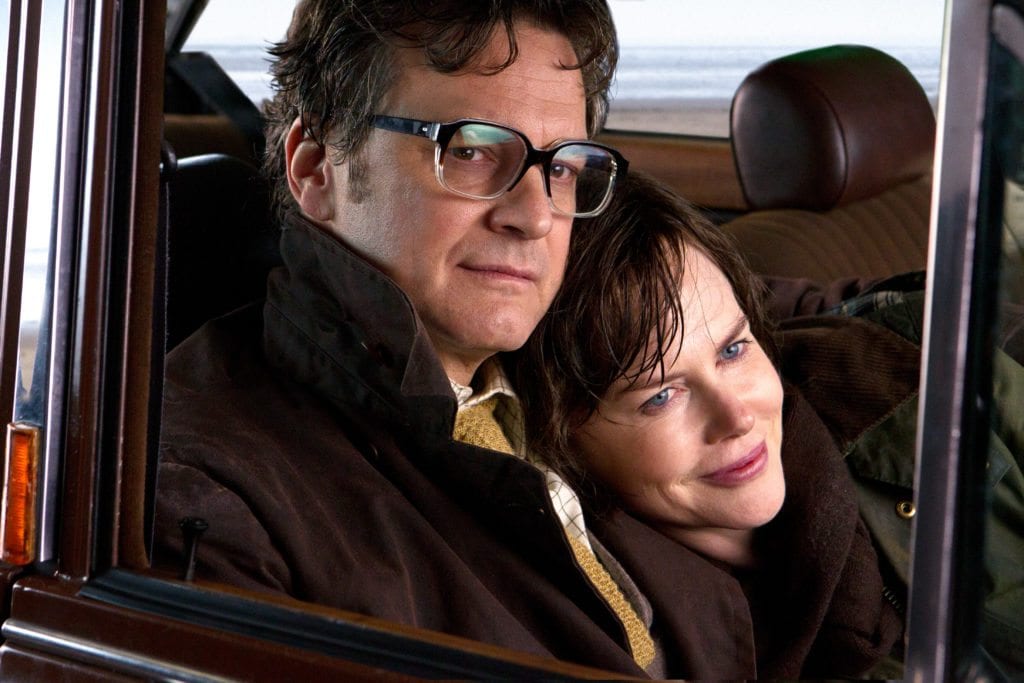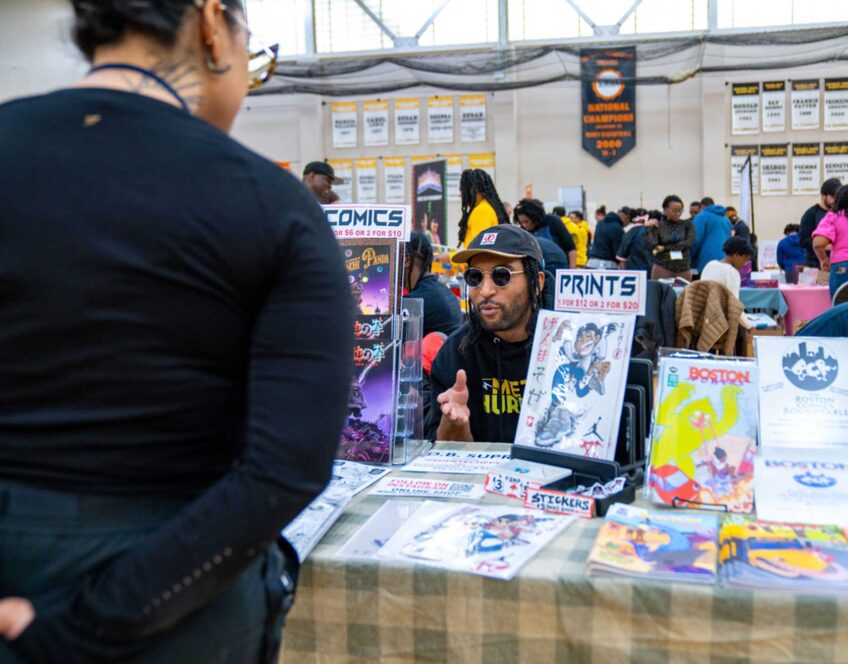Forgiveness, redemption drive “The Railway Man”
The Banner recently spoke with the real Patti Lomax and Andy Paterson, the screenwriter and producer of “The Railway Man"

What does it mean to truly love? Can love really heal the pain? What does it mean to forgive? Can you overcome the demons of your past? How does one find inner peace?
These are the questions at the center of the incredible movie “The Railway Man,” based on the 1995 bestselling autobiography of the same name. “The Railway Man” is the extraordinary true story of Eric Lomax, a British Army officer who is tormented as a prisoner of war at a Japanese labor camp during World War II, survives, is rescued, but is haunted by his past. During Lomax’s imprisonment, he was one of several thousands of soldiers forced to work the notorious Burma Railway also known as the “Death Railway” — a 258 mile stretch of jungle between Bangkok, Thailand, and Rangoon, Burma — built by the Japanese Empire in 1943, to support its forces in the Burma campaign of World War II. Decades later, Lomax and his remarkable and loyal wife, Patti, discovered that the Japanese interpreter responsible for much of his treatment was still alive and set out to confront him.
The film, which was shot in Scotland, Australia and Thailand with major sequences filmed on the actual “Death Railway,” stars Colin Firth as Eric Lomas; Nicole Kidman as Patti; Stellan Skarsgård as Lomas’ commander and friend, Finlay; Jeremy Irvine as the young Eric; and Hiroyuki Sanada as Takashi Nagase, the Japanese Imperial Army officer who presided over Lomax’s interrogation and brutal torture.
The Banner recently spoke with the real Patti Lomax and Andy Paterson, the screenwriter and producer of “The Railway Man,” at a round-table interview to promote the opening of the film in Boston.
What made Eric so different in how he dealt with his experience in Thailand and Burma?
Patti Lomax: In Britain anyway, his generation was taught more of the classics and history, our culture, than nowadays. I don’t know how it is here in America. And, of course there was no end to that for his generation at all. As far as surviving is concerned, his mother’s family is from Shetland. And in the last century they had some hard times. Perhaps, there is a great streak of stubbornness there which probably stood him in good stead.
How did you support Eric in dealing with all the memories, pain and anger?
Patti Lomax: This is Eric’s story. I did have some influence. It’s a love story, I think, when we really look at it. I believe perhaps if one has support — I’m sorry if it sounds trite — that deep support, then perhaps it gives somebody enough strength to go forward, and try to find an answer, whatever it is and, in his case, to receive help from the Medical Foundation for the Care of Victims of Torture, which is a charity in London. [The Medical Foundation was set up in 1985 by a nurse who helped Holocaust survivors in the aftermath of World War II.] It took a period of two years for him to tell his story. It was a healing process in a sense. It wasn’t just my input. It was other people, too.
What have you learned from doing this film? How has it changed you?

In “The Railway Man” former prisoner of war Eric Lomax, played by Colin Firth, confronts his former captor Hiroyuki Sanada, played by Takashi Nagase, years after his release.
Andy Paterson: It’s made it very difficult to make any other films because it’s such an extraordinary story. It does something that I suppose you dream movies can do, which is to tell a specific story that has a resonance for millions of people in different ways. We continue to send people to war and we continue not to take responsibility for that. One of the reasons for me that Patti was such an important part of the story was that she represents the families that deal with the wreckage of war and who deal with that for decades, much of the time unable to even begin to comprehend what the problem is. I’ve learned so much about the fact that human beings aren’t capable of dealing with the kind of trauma we expose them to. I’ve learned a lot about the way that we do not understand or take responsibility for wars fought in our name. I don’t understand how we constantly let that happen.
What was it like watching someone play you and watching your life on the big screen?
Patti Lomax: It was lovely watching somebody half my age. It was a great honor to have someone of Nicole’s caliber play me. It was surreal to begin with and I had to see the film the second time to get beyond that sort of amazement that this lady was representing me. And, the second time it became far more normal, if that makes sense. It was a very great honor.
You mentioned that this is a love story at its core. How did you handle everything that Eric was dealing with? Who did you talk to or lean on in order to help him?
Patti Lomax: I think in the physical sense it was damaging. That’s possibly why I always look like as though I’ve had half a dozen vodkas. I think it’s just simple. I loved the man.
Are you both happy with how the film came out?
Patti Lomax: Enormously. Although it’s a drama, the dramatized scenes are based on fact, and I think that’s a very great skill to have done that. Even the cage piece at the end, which probably seems a little bit overdramatic to somebody who doesn’t know, and right up to the meeting Eric intended to kill that man, and so that’s just representing the physical sense to an audience how he was thinking. So, it’s true.
Andy Paterson: Obviously, the fact that Patti is such a supporter gives you one level of an endorsement. It was a long journey but I don’t think we’ve stopped until it was good as it could have been. We wouldn’t have made it unless we felt we found a way to capture that. It’s a fantasy to me to have Colin, how it ended up being, and having the chance to do it at the level that we were able to do it.




![Banner [Virtual] Art Gallery](https://baystatebanner.com/wp-content/uploads/2024/04/NJ-H_1-713x848.jpg)

